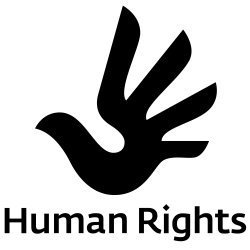Freethought
Freethought is a philosophical position that holds that ideas and opinions should exclusively result from knowledge – science and reason –; and should not be, by any means, restricted by authority, tradition, or religion.
It is characteristic of the 18th Century Enlightenment but hardly confined to anyone epoch or place.
Freedom of thought (also called freedom of conscience or ideas) is the freedom of an individual to hold or consider a fact, viewpoint, or thought, independent of others’ viewpoints.
The right to freedom of opinion and expression is a complex right that includes the right to seek, receive and impart information and ideas of all kinds and through whatever medium. This means, inter alia, that when an individual’s right to freedom of expression is unlawfully restricted, the right of others to ‘receive’ information and ideas is also violated.
During the seventeenth century, the Dutch Republic was transformed into a leading political power in Europe, with global trading interests. It nurtured some of the period’s greatest luminaries, including Rembrandt, Vermeer, Descartes and Spinoza. Long celebrated for its religious tolerance, artistic innovation and economic modernity, the United Provinces of the Netherlands also became known for their involvement with slavery and military repression in Asia, Africa, and the Americas.
Freedom of thought is the precursor and progenitor of — and thus is closely linked to —other liberties, including freedom of religion, freedom of speech, and freedom of expression.
Article 9: Freedom of thought, conscience and religion
1. Everyone has the right to freedom of thought, conscience and religion; this right includes freedom to change his religion or belief and freedom, either alone or in community with others and in public or private, to manifest his religion or belief, in worship, teaching practice and observance.
2. Freedom to manifest one’s religion or beliefs shall be subject only to such limitations as are prescribed by law and are necessary in a democratic society in the interests of public safety, for the protection of public order, health or morals, or for the protection of the rights and freedoms of others.
Article 10 of the Human Rights Act: Freedom of expression
1. Everyone has the right to freedom of expression. This right shall include freedom to hold opinions and to receive and impart information and ideas without interference by public authority and regardless of frontiers. This Article shall not prevent States from requiring the licensing of broadcasting, television or cinema enterprises.
2. The exercise of these freedoms, since it carries with it duties and responsibilities, may be subject to such formalities, conditions, restrictions or penalties as are prescribed by law and are necessary in a democratic society, in the interests of national security, territorial disorder or crime, for the protection of health or morals, for the protection of the reputation or rights of others, for preventing the disclosure of information received in confidence, or for maintaining the authority and impartiality of the judiciary.


